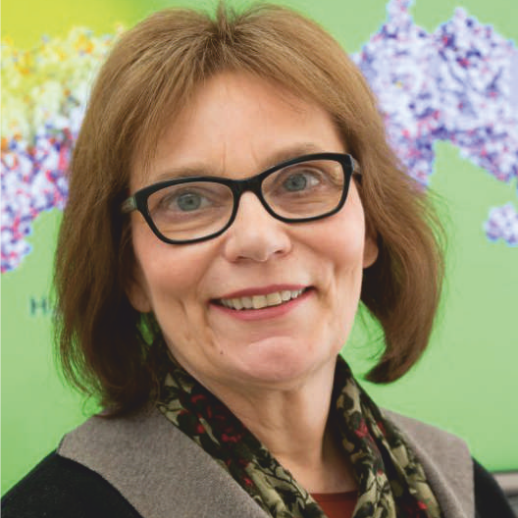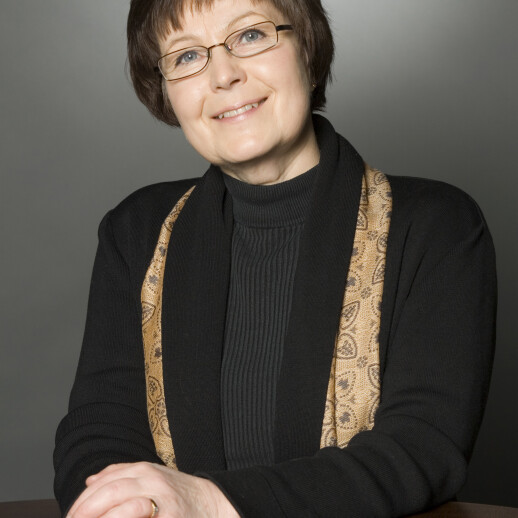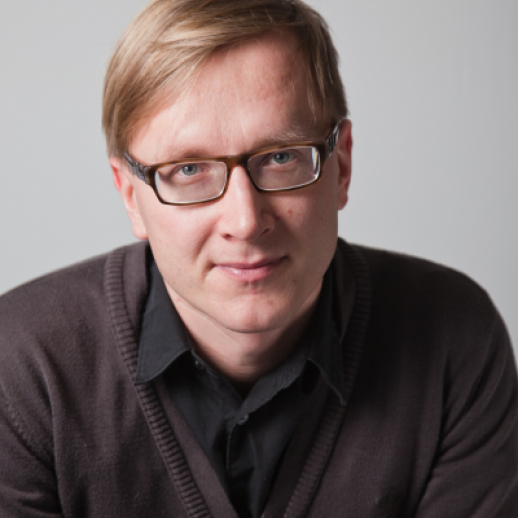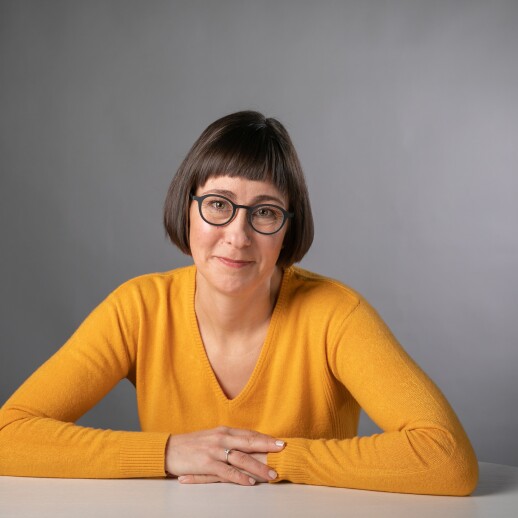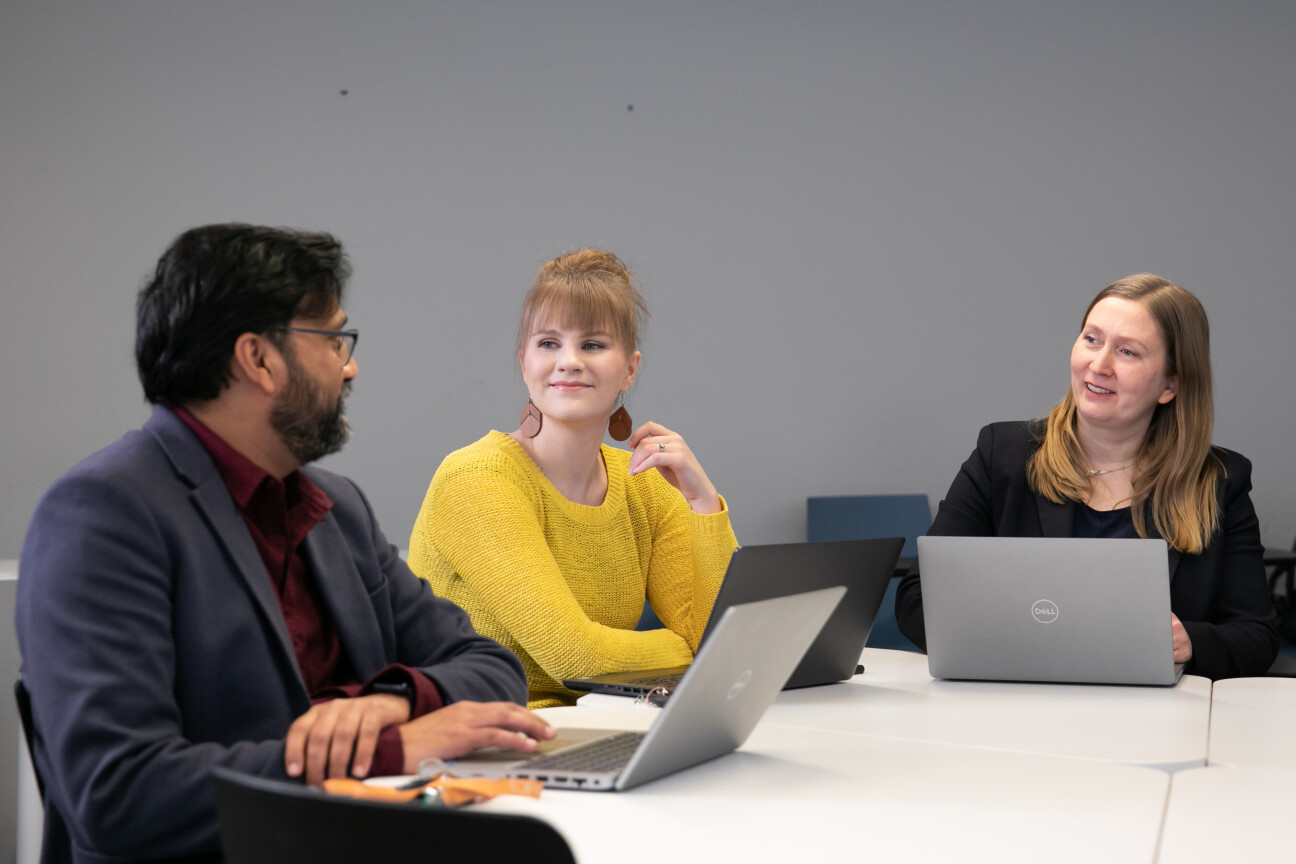Excellence in Research
The University of Turku is a scientifically strong, multidisciplinary university where new research possibilities are sought especially in disciplinary interfaces and interdisciplinary research. This page features Academicians and Academy Professors as well as flagships of research, Centres of Excellence, and research projects funded by ERC at the University of Turku.
Academicians of Science of the University of Turku
Based on nominations made by the Academy of Finland, the President of the Republic of Finland may confer the honorary title of Academician (of Science) to highly distinguished Finnish or foreign scientists and scholars. The title of Academician can be held by no more than sixteen Finnish scientists and scholars at a time.
Academy Professors of the University of Turku
Proficient researchers, who can be regarded as contributing to the progress of research within their own field, can be appointed as Academy Professors. Research posts as Academy Professor are intended for fixed-term, full-time research work. Academy Professors carry out their own research plan, supervise their own research team and provide guidance to junior researchers.
Flagships of Research
The Research Council of Finland’s Flagship Programme is an instrument that supports high-quality research and increases the societal impact emerging from the research. The University of Turku is in charge of two flagships of research: Inequalities, interventions and a New Welfare State INVEST flagship as well as Innovation Ecosystem Based on the Immune System InFLAMES flagship.
The University of Turku participates in two flagships of research: Digital Waters Flagship DIWA and The Education for the Future Flagship EDUCA.
Centres of Excellence in Research
TheResearch Council of Finland's Centres of Excellence (CoE) are success stories of Finnish research. They are at the cutting edge of science in their fields internationally.
The University of Turku leads two Centres of Excellence.
Professor Johanna Ivaska leads the Centre of Excellence on Biological Barrier Mechanics and Disease: From molecular-scale to tissue-level understanding of signal integration and forces. The unit was selected to the Centre of Excellence Programme of the Research Council of Finland for the period 2022–2029.
Professor Virpi Lummaa leads the Centre of Excellence for Human Diversity through Contacts (HuDi-Con). The unit was selected to the Centre of Excellence Programme of the Research Council of Finland for the period 2026–2033.
The University of Turku is part of six Centres of Excellence of the Research Council of Finland.
Professor Riikka Korja is a member of the Centre of Excellence in Learning Dynamics and Intervention Research led by Professor Paavo Leppänen from the University of Jyväskylä. The unit was selected to the Centre of Excellence Programme of the Research Council of Finland for the period 2022–2029.
Professor Kaisa Matomäki is a member of the Finnish Centre of Excellence in Randomness and Structures led by Professor Eero Saksman from the University of Helsinki. The unit was selected to the Centre of Excellence Programme of the Research Council of Finland for the period 2022–2029.
Professor Teppo Hiltunen is a member of the Multidisciplinary Center of Excellence in Antimicrobial Resistance Research led by Professor Marko Virta from the University of Helsinki. The unit was selected to the Centre of Excellence Programme of the Research Council of Finland for the period 2022–2029.
Professor Juha-Pekka Salminen is the leader of the research group in the Centre of Excellence in Anthropocenic Chemical Ecology of Forests (ACE-Forest) coordinated by the University of Eastern Finland. The unit was selected to the Centre of Excellence Programme of the Research Council of Finland for the period 2026–2033.
Professor Rami Vainio is the leader of the research group in the Centre of Excellence in Space Resilience coordinated by the University of Helsinki. The unit was selected to the Centre of Excellence Programme of the Research Council of Finland for the period 2026–2033.
Professor Juri Poutanen is the leader of the research group in the Centre of Excellence in Neutron-Star Physics coordinated by the University of Helsinki. The unit was selected to the Centre of Excellence Programme of the Research Council of Finland for the period 2026–2033.
Research Funded by the European Research Council (ERC)
A funding organisation of the European Union, the European Research Council (ERC), advances the highest quality research across all fields with long-term competitive funding.
ERC Starting Grant Projects
The aim of the research project is to find new materials that are suitable for storing energy. A suitable material needs to have multiple, partly contradictory, qualities. Some materials are not suitable due to, for example, inadequate solubility or since the cell voltage of the battery is too low. The project develops means to avoid these restrictions and the aim is to develop batteries suitable for storing renewable energy. The funding period of the project is 1 Jan 2021–31 Aug 2026.
The research project is led by Professor Pekka Peljo.
A growing number of recent innovations and technologies have created a demand for intelligent and sustainable materials capable of adapting to essential operating conditions. Nevertheless, the inability of molecular machines to provide these features in a solid state has impeded their utilisation. SmartHyMat project seeks to address this challenge by creating a solution for advanced nanotechnology. The project focuses on developing hybrid solid-state architectures with novel lead-free hybrid halide perovskites that will serve as scaffolds for stimuli-response systems, leading to a new generation of smart and sustainable technologies.
The funding period of the project is 2024–2029.
The research is led by Associate Professor Jovana Milić.
Being bullied is a leading risk factor for mental health problems in adolescents. Various efforts have been made to reduce bullying, but there is still a need to find ways to mitigate the harm caused to those who are victimised. Recent studies have found that rumination – repeatedly dwelling on distress – plays a key role in linking victimisation to later mental health challenges. It is a common belief that seeking social support is beneficial, but social support from friends does not always help victimised youth and, surprisingly, can even make things worse for some. The DWELL project explores this paradox and focuses on co-rumination, which means excessively discussing distress with others. The DWELL project introduces an innovative approach to understanding which friends youth tend to co-ruminate with, and how the link between co-rumination and mental health is affected by characteristics of the individual, who they co-ruminate with, and their relationship. The project looks at factors such as what leads young people to dwell on past victimisation and when discussing problems such as bullying with friends is helpful or harmful.
The funding period of the project is 2025–2029.
The research is led by University Research Fellow Sarah Malamut
In the SHADES project, the aim is to gain a holistic understanding of the characteristics, motivations, and social information processing of the students who bully their peers in lower secondary school and how they interpret social situations. By following young people through lower secondary school, researchers investigate the characteristics of students who bully others, why they bully, and why some bullies do not stop their behaviour despite intervention. The project will also make use of the data already collected by the KiVa School, developed at the University of Turku, and Finnish register data to form a globally unique longitudinal dataset. The same people have been followed from childhood to adulthood, and some have also provided saliva samples for DNA isolation. The aim is to find out how different types of bullying perpetrators cope in life after their school years, and what role genetic factors play in this. Researchers will look at how bullies cope later in life in terms of mental health, physical health and well-being; how they get an education and move into professional life; whether their lives include aggression, substance abuse and crime; and what kind of relationships or family they have.
The funding period of the project is 2025–2029.
The research is led by Senior Researcher Tiina Turunen
MARCEN project investigates the mechanisms that lead to the legal inclusion and exclusion of Sámi people. The focus is on the Sámi Truth and Reconciliation Commissions established in Finland, Sweden and Norway. The MARCEN project aims to unprecedently conceptualise Nordic rights development from the perspective of Sámi experiences of law and rights mobilisation to push the boundaries of socio-legal scholarship. The researchers examine and compare the changing legal, political and social governance of indigeneity in the Nordic welfare states. Understanding the mechanisms that lead to legal inclusion and exclusion, can build more inclusive justice systems and prevent legal exclusion.
The funding period of the project is 2025–2029.
The research is led by Assistant Professor Daniela Alaattinoğlu
ERC Consolidator Grant Projects
The INTRAPOL project aims to understand the processes that determine who get elected into positions of political power and whether who is in power is important for citizens’ welfare. A well-performing system is able to select competent and honest leaders and politicians who are representative of the citizens’ interests, and who have incentives or the will to make decisions to the benefit of the people.
The first work package travels far to the past to the origins of the modern party system in Victorian England. The second work package studies the internal organization of parties by analyzing the objectives and role of party leaders and internal conflicts within parties by developing a game theoretical model equilibrium model of party organizations. The third work package uses The Finnish Defense Forces draft data on cognitive competence and personality traits to analyze their role in political selection and its policy effects using quasi-experimental research designs.
The research is led by professor Janne Tukiainen.
The research project led by Professor Paulina Salminen focus on acute appendicitis, which is one of the most common surgical emergencies worldwide. The aim of the project is to show that uncomplicated acute appendicitis can be safely and effectively treated without surgeries. The project investigates whether antibiotics are needed at all in the treatment of uncomplicated appendicitis.
The funding period of the project is 2024-2029.
Cognitive functions such as memory often decline as we age. The aim of the project led by Senior Researcher Alireza Salami is to identify the modifiable brain mechanisms underlying cognitive decline, and, crucially, finding ways to delay it. Salami will be studying the possible links between these cognitive impairments and the important brain neurotransmitters, dopamine and noradrenalin. He will be looking at the dopamine system in its entirety, from production to signalling, and how it interacts with noradrenaline, a relationship that has not yet been empirically established in the ageing process.
The ERC project is coordinated by Karolinska Institutet. The funding period of the project is 2025-2030.
NATURETIME project examines how nature and different living environments affect people's perception of time. Experiences of time scarcity are common among people living in fast-paced urban environments worldwide. The goal is to understand how nature experiences can positively influence the relationship with time and how this knowledge can guide the design of healthier and more sustainable living environment. The project will deliver practical insights that will help guide the design of cities and other living environments—supporting a healthy relationship with time, enhancing well-being, and fostering the sustainable behaviors needed to address environmental challenges.
The funding period of the project is 2026–2030.
The research is led by Assistant Professor Ricardo Correia
ERC Advanced Grant Projects
Research on bullying prevention has so far focused on average effects of anti-bullying programs and mainly concerned universal, preventive measures. While important, this has overshadowed attempts to uncover how exactly school personnel intervene in particular bullying cases and when and why that fails. CHALLENGE will open up new research horizons by shifting the focus from average program effects to the characteristics and conditions of youth who remain victimized or continue bullying despite targeted interventions. The project is part of The KiVa Antibullying Program developed at the University of Turku. The funding period of the research project is 1 Oct 2020–31 Mar 2026.
CHALLENGE is led by Professor Christina Salmivalli
DIGIPARENT combines an evidence-based approach to child mental health with the latest technology and offers the potential for scientific breakthroughs, including the use of artificial technology to produce digital content tailored to the needs of individual families. DIGIPARENT is the first population based study about the long-term outcomes and modifiers of digitally assisted parent training. It addresses what works and how it works in real-world practice.
Detection of genetic factors related to treatment response and possible epigenetic outcomes of treatments opens avenues for new scientific questions on how treatments can affect human biology. DIGIPARENT also responds to the urgent need to study digital and remote interventions as child mental health services struggle with the considerable increase in demand for services, due to the COVID-19 pandemic.
The research project is led by Professor Andre Sourander. The project started in 2021 and the funding period is five years.
The research project led by Professor Virpi Lummaa focuses on how major societal changes in the past 300 years have influenced human kinship networks and how they, in turn, have influenced the evolutionary fitness of people in the 18th to 20th century Finland. Lummaa also investigates the same questions in Asian elephants, which have suffered from declines in population size during the past 50 years due to human influence. The project studies kinship networks of different generations collected from Finnish church records as well as digitised information about Karelian evacuees’ later life events and social connections at their new places of residence. The long-term dataset on Asian elephants in Myanmar collected by Lummaa’s research group enables the study on how broken friendships influence different measures of health and well-being. The funding period of the project is 2024–2029.
The project examines the link between a person’s negative emotions and their physical well-being. The project aims to model the functions of the emotional networks of the brain and body and their impact on somatic health and mental well-being. The project sheds light to the Interactions between the brain and organs that may play a key role in psychiatric disorders. The research project is tackling this issue with whole-body PET imaging, which measures the physiology of the brain and the body's emotional networks. The project aims to discover bodily pathways linked to the onset of anxiety and cardiovascular diseases.
The funding period of the project is 2024–2029.
The research is led by professor Lauri Nummenmaa.
The project aims to discover how the natural biological limits of a healthy body prevent or contribute to the spread of cancer in the body. The aim of the project is to understand how breast and pancreatic cancer spread from the local tumour to the surrounding tissue and how cancer cells metastasise. The project searches biomarkers to assess cancer malignancy and new drug development targets for the treatment of metastatic cancer.
The funding period of the project is 2024–2029.
The research is led by professor Johanna Ivaska.
ERC Synergy Grant Projects
In the ERC Synergy project researchers develop reliable digital platforms to encourage people to participate in decision-making. In the project the researchers are conducting ground-breaking basic research on the relationship between democratic deliberation and voting. The project is also studying how AI could benefit democratic deliberation and decision-making. Furthermore, the researchers are developing innovative and scalable forms of civic participation and deliberation which are needed to strengthen democracy. The researchers will test the digital platforms developed in the project through randomised trials and analyse the results. The goal is both to improve the performance of the platforms and to better understand how to involve people in decision-making on complex policy issues. With this approach, the researchers are aiming to find out whether digital platforms promote democratic practices. In addition, the research will produce scientifically validated open-source tools that will allow the platforms to be launched globally.
The funding period of the project is 2025–2030.
The project is coordinated by the University of Toulouse. At the University of Turku the research is led by Professor Maija Setälä.
